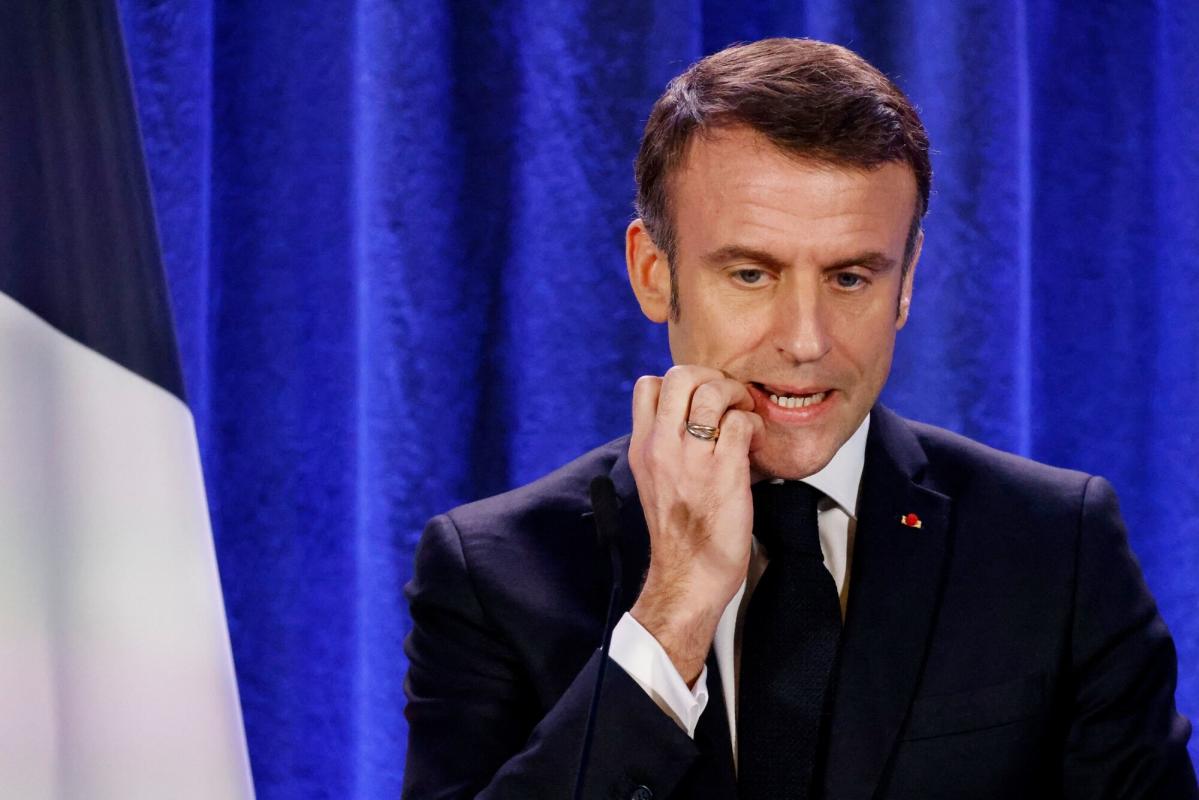World
Macron Resignation Rumors Denied After French Bonds Tumble

(Bloomberg) — Rumors that President Emmanuel Macron was preparing to resign were swiftly denied after speculation over his future spurred a sharp selloff in French government bonds.
Most Read from Bloomberg
Macron hasn’t been discussing a potential resignation, a person close to the French President said on Tuesday after a radio station reported about the possibility. He is set to hold a press conference on Wednesday to set out his campaign, the person added.
The prospect of a prolonged period of political uncertainty is rattling investor confidence in the economy and nation’s political outlook, with the unease starting to spread to other European markets.
The yield on 10-year French bonds, known as OATs, jumped as much as 10 basis points Tuesday, and widened the spread over equivalent German bonds to the highest level since March 2020 on a closing basis. Italian securities, considered among the region’s riskiest given the government’s debt pile were swept up in the rout for a second day, with the spread over bunds jumping to 150 basis points.
Macron called the election to curb the political rise of Marine Le Pen, whose National Rally party won widespread support in the EU elections over the weekend. The first round of the vote on June 30 risks becoming the ultimate showdown over Macron’s trademark economic policies, which had largely reassured investors and businesses since he took office in 2017.
France’s Snap Election Shakes Investor Confidence in Economy
In particular, plugging holes in the budget will become even more challenging if he loses control over parliament and the government. S&P Global Ratings last month downgraded the nation’s credit score, saying the deficit will remain above 3% of gross domestic product through 2027. France’s fiscal watchdog says the government’s deficit strategy lacks coherency and credibility.
“Macron’s government was already struggling with fiscal consolidation, and the concern is now that any National Rally government will follow a Trump-esque approach to fiscal consolidation – i.e., trying to grow its way out of the problem,” said Chris Turner, ING’s global head of markets.
He flagged the European Commission will likely launch its Excessive Deficit Procedure against France on June 19, an action designed to force member states to get poor public finances in line with EU rules. While that risk has been well-flagged — and applies to a host of other countries — it will keep the spotlight on France’s fiscal challenges just weeks ahead of the vote.
A poll published Monday of first-round voting intentions puts the National Rally at 34%, with Macron’s group trailing at 19%.
“We had been short France from the beginning of the year due to the fiscal deterioration but we also have been surprised by Macron’s strategy,” said Kaspar Hense, senior portfolio manager at RBC BlueBay Asset Management. “A new election is a high-risk strategy in times of heightened geopolitical risk in the first place.”
Political Chaos
Macron is now headed into a very high stakes Group of Seven meeting having unleashed political chaos back home. He’s joining a series of leaders who are also struggling and facing elections. But his future — and indeed how he can put the genie back in the bottle — will be a dominant topic in Apulia, Italy this weekend, both among his colleagues and by the media. It’s caught not only his country off guard, but also his close partners in the European Union.
The size of the moves are unusual for French bonds, among the most liquid in the European market and traditionally viewed as substitutes for bunds, the region’s safest asset. The volatility “shows a change of risk perception on OATs,” said Societe Generale SA strategist Adam Kurpiel.
French equity benchmark CAC 40 was down 0.9% on Tuesday led by banking stocks including BNP Paribas, Societe Generale and Credit Agricole. The index is down 2.2% so far this week.
“The question we’re asking ourselves is at what level of spreads do domestics come to buy?” said Theophile Legrand, a rates strategist at Natixis SA. Previously, he had expected French investors to step in when the spread reached 60 basis points but now expects them to appear when the gap widens to 70 basis points.
–With assistance from Aline Oyamada and James Hirai.
(Updates prices throughout, adds addition comment from paragraph seven.)
Most Read from Bloomberg Businessweek
©2024 Bloomberg L.P.







:max_bytes(150000):strip_icc()/roundup-writereditor-loved-deals-tout-f5de51f85de145b2b1eb99cdb7b6cb84.jpg)


